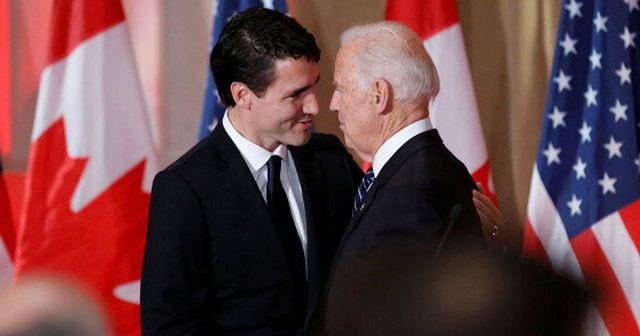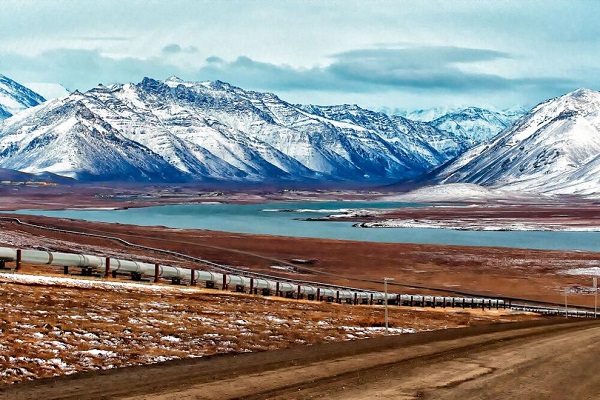Alberta
Response: This Is Why Geothermal Should Be Our First Choice When It Comes To An Energy Transition

I write in response to “CBC News Poll: Why the economic crisis could speed up transition to renewable energy” published recently:
(see: CBC News poll: Why the economic crisis could speed up transition to renewable energy)
Geothermal is the missing link in Earth’s energy mix. It’s the only scalable solution that is both clean and baseload. Without a clean baseload power source, the grid will struggle to replace all the legacy coal, gas and nuclear power, with just intermittent sources like wind and solar (even with better batteries than exist today).
Geothermal, however, can fill this gap. More importantly, we can do this not by importing windmills, solar panels and batteries from China, but by building on the same world-leading assets and expertise that sit idle in the oil service industry today. We can lead the world simply by using this expertise to convert our old abandoned well sites to geothermal use.
Even better, Eavor’s “made in Canada” solution (which is available to any Canadian developer), facilitates rapid scaling. In particular, Eavor’s technology eliminates or vastly reduces the need for exploration uncertainties, delays and costs. It also transforms geothermal from baseload to dispatchable. This allows Eavor to work much more synergistically with wind and solar where needed. Eavor’s technology, known as “Eavor-Loop™”, works by drilling a sealed well-bore loop which gently harvests geothermal heat over a large surface area simply through conduction. Without the need for a geothermal aquifer, this enables implementation almost anywhere in the world. In line with this, Eavor has assembled a multi-year, multi-billion-dollar prospect pipeline. These prospects are, however, all outside of Western Canada.
What will it take to enable Eavor, and other Canadian geothermal developers like Terrapin and DEEP, to bring this geothermal revolution home? The same thing that has nurtured successful and growing geothermal industries elsewhere – a combination of early grants and energy pricing that recognizes the advantages of green baseload power. Ideally these incentives would be modeled after the SDE+ system in the Netherlands, which is more efficient, but has the same net effect as a Feed-in-Tariff.
Our calculations are that, a geothermal “Moon Shot” for Western Canada with the above incentives, could easily attract $4 billion in foreign investment capital, to create 400 MW of clean, dispatchable power, all the while employing 5,500 oil service workers for 4 years. Larger plans could employ 25,000 for a decade or more. Such a plan would create a geothermal ecosystem in Canada that could lead the world and represent an entire new clean export industry. At Eavor, we believe that is a vision worth getting excited about. In short, the current situation doesn’t have to devolve into a fight between oil industry jobs or renewables. It doesn’t have to be a zero-sum game. With geothermal solutions like Eavor the same investment dollar can protect oil service jobs and improve the environment all at the same time.
To learn more about Eavor visit Eavor
For more stories, visit Todayville Calgary
Alberta
Alberta government should eliminate corporate welfare to generate benefits for Albertans

From the Fraser Institute
By Spencer Gudewill and Tegan Hill
Last November, Premier Danielle Smith announced that her government will give up to $1.8 billion in subsidies to Dow Chemicals, which plans to expand a petrochemical project northeast of Edmonton. In other words, $1.8 billion in corporate welfare.
And this is just one example of corporate welfare paid for by Albertans.
According to a recent study published by the Fraser Institute, from 2007 to 2021, the latest year of available data, the Alberta government spent $31.0 billion (inflation-adjusted) on subsidies (a.k.a. corporate welfare) to select firms and businesses, purportedly to help Albertans. And this number excludes other forms of government handouts such as loan guarantees, direct investment and regulatory or tax privileges for particular firms and industries. So the total cost of corporate welfare in Alberta is likely much higher.
Why should Albertans care?
First off, there’s little evidence that corporate welfare generates widespread economic growth or jobs. In fact, evidence suggests the contrary—that subsidies result in a net loss to the economy by shifting resources to less productive sectors or locations (what economists call the “substitution effect”) and/or by keeping businesses alive that are otherwise economically unviable (i.e. “zombie companies”). This misallocation of resources leads to a less efficient, less productive and less prosperous Alberta.
And there are other costs to corporate welfare.
For example, between 2007 and 2019 (the latest year of pre-COVID data), every year on average the Alberta government spent 35 cents (out of every dollar of business income tax revenue it collected) on corporate welfare. Given that workers bear the burden of more than half of any business income tax indirectly through lower wages, if the government reduced business income taxes rather than spend money on corporate welfare, workers could benefit.
Moreover, Premier Smith failed in last month’s provincial budget to provide promised personal income tax relief and create a lower tax bracket for incomes below $60,000 to provide $760 in annual savings for Albertans (on average). But in 2019, after adjusting for inflation, the Alberta government spent $2.4 billion on corporate welfare—equivalent to $1,034 per tax filer. Clearly, instead of subsidizing select businesses, the Smith government could have kept its promise to lower personal income taxes.
Finally, there’s the Heritage Fund, which the Alberta government created almost 50 years ago to save a share of the province’s resource wealth for the future.
In her 2024 budget, Premier Smith earmarked $2.0 billion for the Heritage Fund this fiscal year—almost the exact amount spent on corporate welfare each year (on average) between 2007 and 2019. Put another way, the Alberta government could save twice as much in the Heritage Fund in 2024/25 if it ended corporate welfare, which would help Premier Smith keep her promise to build up the Heritage Fund to between $250 billion and $400 billion by 2050.
By eliminating corporate welfare, the Smith government can create fiscal room to reduce personal and business income taxes, or save more in the Heritage Fund. Any of these options will benefit Albertans far more than wasteful billion-dollar subsidies to favoured firms.
Authors:
Alberta
Official statement from Premier Danielle Smith and Energy Minister Brian Jean on the start-up of the Trans Mountain Pipeline

-

 Addictions2 days ago
Addictions2 days agoCity of Toronto asks Trudeau gov’t to decriminalize hard drugs despite policy’s failure in BC
-

 Automotive2 days ago
Automotive2 days agoVehicle monitoring software could soon use ‘kill switch’ under the guise of ‘safety’
-

 Bruce Dowbiggin2 days ago
Bruce Dowbiggin2 days agoIt Gets Late Early These Days: Time To Bounce Biden & Trudeau?
-

 National2 days ago
National2 days agoBritish Columbia quickly shoots down bill to ban men from competing in women’s sports
-

 Economy2 days ago
Economy2 days agoOttawa’s homebuilding plans might discourage much-needed business investment
-

 Alberta2 days ago
Alberta2 days agoAlberta government should eliminate corporate welfare to generate benefits for Albertans
-

 Opinion2 days ago
Opinion2 days agoClimate Murder? Media Picks Up Novel Legal Theory Suggesting Big Oil Is Homicidal
-

 Energy1 day ago
Energy1 day agoHouses passes bill to protect domestic oil production, protect Iñupiat community









